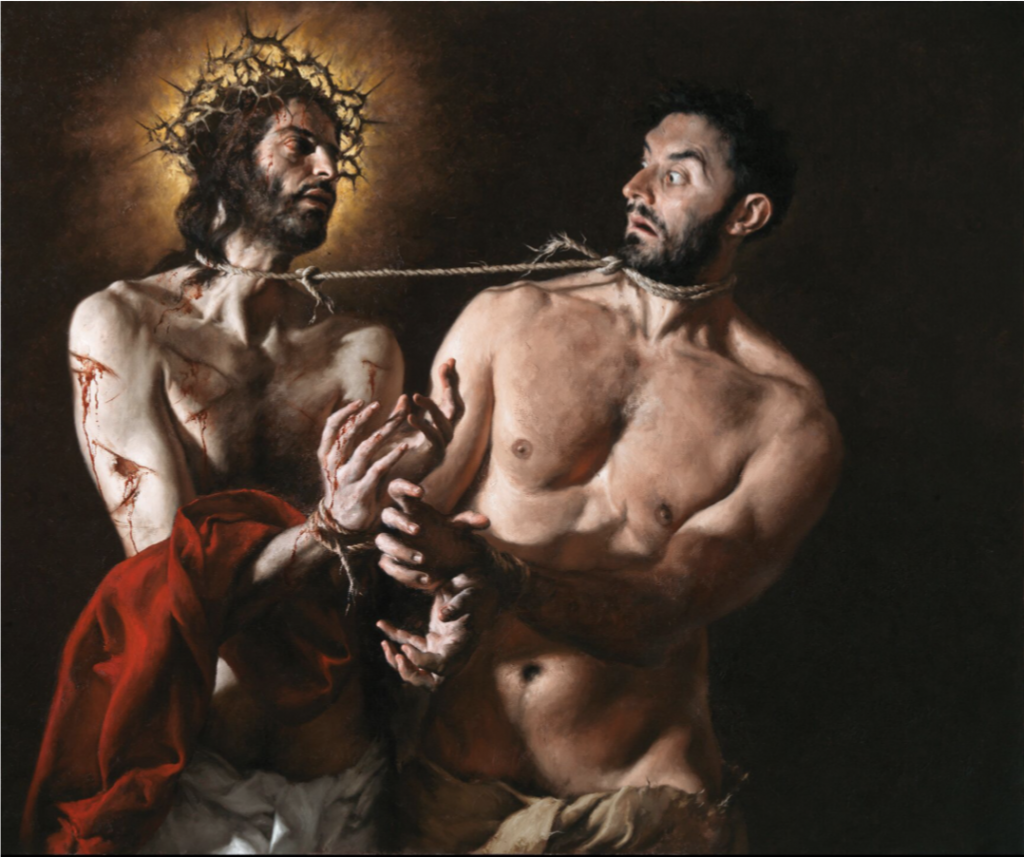Editor’s note: This was first posted on my FB page on April 20, 2019. I’m reposting it here with some additions and revisions.

CAN WE JUST STOP THIS FALSE ANALOGY, of choosing between Barabbas and Jesus as like a choice between “thieving politicians and honest candidates” in the forthcoming Philippine elections? It is the worst kind of analogy.
- Many (if not most) Biblical scholars now say that Barabbas (literally, “son of the father”) was not a plain thief or murderer, but was probably a guerrilla warrior or revolutionary who was judged guilty of crimes related to rebellion, as were many other Jewish zealots attempting to overthrow Roman rule in Judaea and Galilee.
Even two of the four Gospel authors said (explicitly or implicitly) that his crime — whether robbery or murder — was part of an insurrection. Matthew only said “notorious prisoner.” And obviously we all know that as recent as under US colonial rule, Filipino rebels were pursued, tried, and executed as “brigands” or “bandits”. - Jesus was also probably another revolutionary leader, who led a tightly organized following from their rural bases in Galilee into Jerusalem, and was acclaimed as the new messiah, aka King of the Jews. In fairness, he told Pilate, “It’s you who say I am. Your words, not mine.” He only claimed to be Son of Man, or Son of the Father, (same as Barabbas).
- In short, both Jesus and Barabbas were revolutionaries, and were not being punished as mere thieves or charlatans — which was also the reason why it was the Roman governor himself instead of a local Herodian functionary who had to face the Jerusalem crowd to let them choose who to release, as a Passover tradition.
- Pilate was simply using a clever ruler’s routine tactic of fooling, confusing, and dividing the people by offering them a false choice of whom to release and whom to execute, and then later washing the blood off his hands and blaming the Jewish people instead.
At best, the Roman prefect’s subliminal message — as the Bible adopted in the next centuries would have us understand — was in fact a moral lesson: the people had to choose between a hardcore armed revolutionary and one later projected as a “meek and peaceful reformer.” (Which wasn’t truly a real choice. Jesus was also a revolutionary, but perhaps with an alternative strategy.)
The Jerusalem crowd apparently chose a hardcore armed revolutionary (Barabbas), and that was Rome’s way of saying, “Which is why we sacked Jerusalem and torched your Temple in 70 A.D. You incorrigible rebels deserved it. But now you know us better, and we understand you better. And so we give you Emperor Constantine and the Nicene Creed. Peace is at hand, finally.” #
As an epilogue, may I offer (as my good friend Bani Lansang suggested) a good online read: Reza Aslan’s Zealot. Along the same lines, I wrote a much shorter blog piece in 2013. Happy Resurrection Day!
Follow @junverzola
